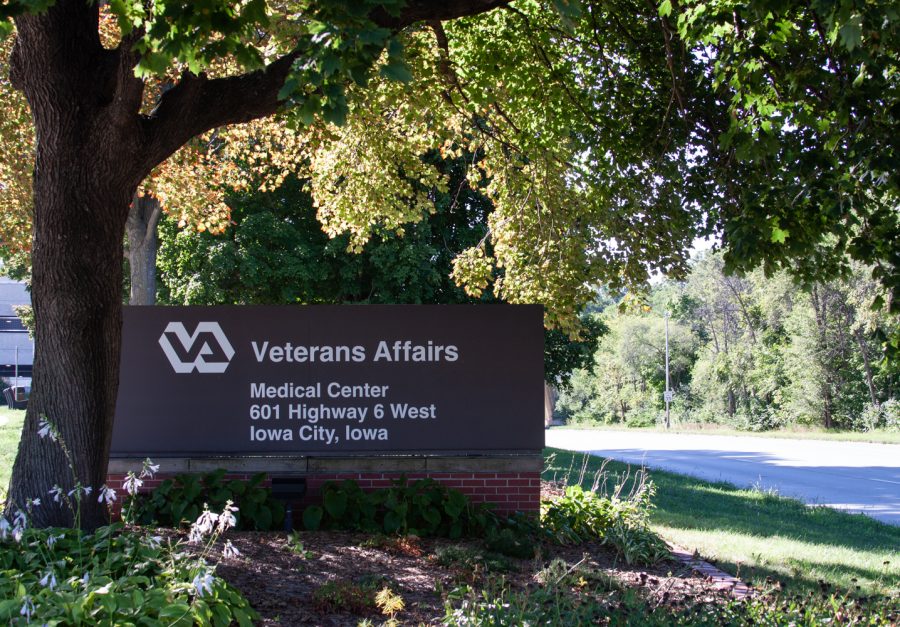Opinion | More mental health services have been added to the VA, but there’s more to be done
More mental health services are being implemented at the VA, which is one step in the right direction to addressing the lack of access to care in Iowa.
The outside of the Veteran Affairs Medical Center on Monday, Sept. 6, 2021.
April 4, 2022
Iowa has a long-standing history of struggling to provide mental health services for Iowans. According to the National Alliance on Mental Illness, Iowa is one of the worst states for mental health care, ranking 51st in relation to the number of beds there are compared to Iowans.
The Iowa City Veterans Affairs is attempting to address one area of this issue by developing a medical psych unit, a community living center, and a residential rehabilitation treatment program.
Having these programs would help veterans in the area have easier access to care instead of having to travel to Des Moines to reach the community living center there and access services.
This is just one example of how mental health services in Iowa need to expand to serve more of the population.
Mental health data in Iowa shows 42.2 percent of adult Iowans have reported experiencing symptoms of anxiety and depression. Only around a quarter of this group was able to receive therapy or counseling. Additionally, well over half of the population lived in an area with an insufficient number of mental health professionals.
Young Iowans are also suffering the consequences of a lack of mental health services. It was reported that 58 percent of Iowans from 12 to 17 who have depression did not receive any treatment.
Across the board, there is a lack of necessary services and access to mental health care, which has led to real consequences for Iowans.
Quad Cities mental health providers are struggling to meet the demands of the community’s needs. A staff of 25 therapists at South Park Psychology in Moline sees 900 patients a week. On top of the widespread need for these services, there are a lack of mental health providers that can prescribe medication. This leads to members of the community being unable to get access care.
A Quad-Cities mental health professional reported how seeking more people in the field is expensive and insurance reimbursements are insufficient. More money and effort by the government need to be taken to invest in mental health services and recruit mental health professionals.
To truly address mental health needs in Iowa it’s important to investigate disparities in access and care. People of color face additional barriers to care that need to be addressed in efforts to expand mental health services. Reports showed Black Americans living under the poverty line were twice as likely to experience serious psychological distress than those two times over the poverty line.
In Iowa, the overall poverty rate was 11.2 percent overall but 27.3 percent for African Americans. To address mental illness in Black communities or communities of color in general, we need to address systems of oppression.
At an Iowa town hall meeting for the National Association of Social Workers, Democrat governmental candidate Deidre DeJear commented on the need for mental health services in Iowa.
As previously reported, she said to address the root of the problem, we must investigate disparities within the education system, health care, and beyond. She also suggested implementing a loan forgiveness program for social workers and raising reimbursements. DeJear also commented on how Iowa needs more beds at mental health care facilities across the board.
Iowans need to see this kind of expansion in action. Implementing more services at the VA is one step in the right direction. This action should be used as fuel to create even more access to care across the state and for all populations.
Columns reflect the opinions of the authors and are not necessarily those of the Editorial Board, The Daily Iowan, or other organizations in which the author may be involved.













